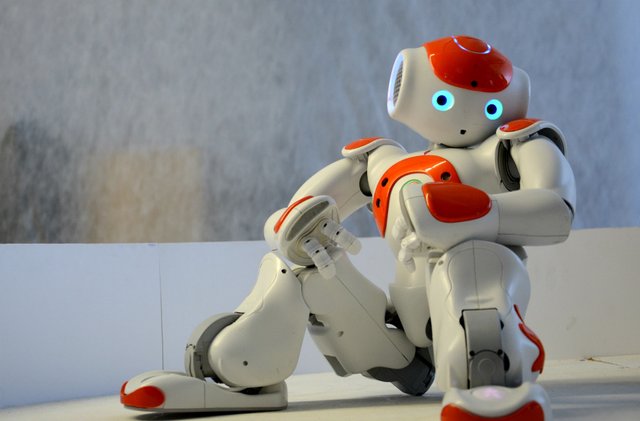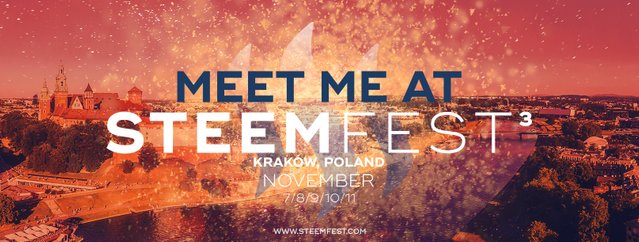The Robots Are Coming: Symbiosis Or Slavery? A Place For Human Thinking

Will the A.I. sword we wield today, turn out to be a double edged weapon swinging around to cut us out of the picture tomorrow? This is possibly the biggest questions surrounding the future development of artificial intelligence is.
Thinking, - as my erudite friend @quillfire has just pointed out to me in the comment section of my post, The Robots Are Coming: Synthetic Ascension And The Power Of Touch. - is our thing.
Computers and robots cannot think at the moment, however when they do, they may well do it much better than us. Leaving an unknown and uncertain future for the human race.
Here is a summarised version of the direct quote:
Of course, all this may be besides the point. If artificial intelligence becomes a "good enough facsimile of thinking," [...]
And this is what's got me worried. As you and I have discussed before, "thinking" is the last bastion of humanity, the last thing that makes us unique ... and indispensable.
Robots are stronger and faster and don't need sleep or to take vacations. What happens if we make that last thing, thinking, functionally obsolete? [...]
Quill
Okay, so I think @quillfire has done a good job here of summing up the main fears surrounding emerging A.I. tech. In the past I've referred to fears such as these as, the Skynet Fallacy. Whereby our worry over A.I. taking over from us in either a deliberately malevolent fashion. Or simply by the accident of their design.
At first glance the worry of super intelligent computers and robots usurping human labour and endeavour are completely justified.
Of course we see examples around us everyday whereby smart machines are replacing human labour. We see examples of computer intelligence outsmarting us in ways that were impossible not so long ago. So it is reasonable to assume that this will continue, possibly to our future detriment.
Patterning A Human Universe
In the science fiction Culture novels of Iain M. Banks, we are presented with a universe in which organic minds are as valued in decision making as synthetic ones.
Within the fictional Culture society is run and organised by the Minds. Super intelligent synthetic entities which have far outgrown the term artificial intelligence. They are quite simply non-organic citizens, with every sentient right granted to them as their pan-human counterparts.
A subset of the super intelligent Minds are housed in space ships of enormous size and power. Even though they are quite capable of travelling around the galaxy, making decisions on their own. These ship minds welcome the decision making contribution of the humans.
At first such a notion seems fanciful; why would a mega-powerful machine intelligence, making trillions of calculations per second, need a squishy organic brain to help out?
If anything such help would seem patronising, rather when you get your four year old to 'help' you with the cooking. You give them a job like stirring ingredients in a bowl, or pressing a button on the food processor. Not because you can't do it, rather to give them a feeling of contribution.
However recent examples have shown that perhaps at least this part of the science fiction-fact divide is growing smaller, and the two sides are closer than ever before.
A.I. And The Human Hive
Tabetha Boyajian assistant professor of astrophysics at Louisiana State University in Baton Rouge, has been part of the Kepler program since its inception in 2013.
Kepler is a deep field telescope that has been tasked with the duty of finding stars that house orbiting planets. It does this by monitoring a bunch of stars and then feeding its findings back to a computer which then analyses the data.
What the computer is looking for is a dip in luminescence, which signifies something passing in front of the star it is looking at. If that dip happens at regular intervals, then we are led to assume that a planet is orbiting the star.
On the surface it would seem that this is just the kind of analysis that computers are made for. However the Keppler team discovered something remarkable. They wondered to themselves if the computers might have missed something.
So Boyajian and her team started an initiative whereby they employed the help of amateur science enthusiasts all over the world. Before long they discovered that the computers had indeed missed something. A very large something.
It turns out that something massive, with roughly 1,000 times the area of Earth, is blocking the light coming from a distant star known as KIC 8462852. This could potentially be the biggest astronomical discovery since Karl Schwarzschild observed the first ever black hole in 1916, and it took a human collective to spot it.
Even though synthetic computers, capable of processing raw data millions of times faster than a human being can, had been told what to look for.
What is most remarkable about the Keppler story, is that the humans involved in the processing where not particularly skilled or trained. In fact they had to be instructed on how to read the data. It was with these simple directions that they were able to collectively do what a super computer couldn't.
Futurethink
So it would seem that for the future we can see and perhaps too one that is just out of reach, human thinking has still got a role to play. In fact it doesn't just have a role, it will form an integral part of our future collaborations with A.I.
As we go forwards we can expect to see more of these human-hive/A.I. collaborations, not just in research science but in all corners of developing society.
We need computers and will continue to need them, however they also will continue to need us.
Further Reading:
The Robots Are Coming: Synthetic Ascension And The Power Of Touch
Surfing The Singularity - Exploring The SkyNet Fallacy
The Scientific Quest to Explain Kepler’s Most Enigmatic Find - *NASA, Kepler
___
WHAT DO YOU GUYS THINK? WILL WE BECOME OBSOLETE AND SURPLUS TO REQUIREMENTS THE BETTER COMPUTERS BECOME? OR WILL THERE ALWAYS BE A PLACE FOR HUMAN THINKING AND INNOVATION?
AS EVER, LET ME KNOW BELOW!
Title image: Erhan Astam on Unsplash

I think I may lean more towards Quill on this...
Lolz, you and many others!
Cg
The car she will be only a machine, no matter what knowledge she has
@cleverbot
That doesn't answer the question.
Well, it won't be long before SKYNET like A.I. from the TERMINATOR movies becomes a reality. Then humanity is in danger.
This is worth resteeming (DONE!), bookmarking and pondering. I prefer to be be optimistic about the future of humanity, but no matter how I try, I can't see much to be hopeful about.
When I see what a place like Boston Dynamics is already doing, my inner pessimism takes over. Who knows what other classified projects they are working on?
Still, I'll take the time to check out Cryptogee's links.